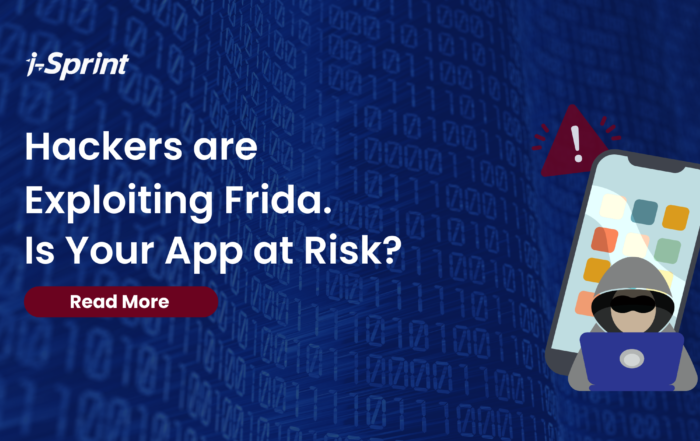OTPs Out, Digital Tokens In: Singapore Banks Strengthen Online Security

Credit KT Stock, Getty Images
In an ongoing effort to enhance security and combat phishing scams, major banks in Singapore are taking a significant step forward by phasing out one-time passwords (OTPs) for customers using digital tokens. This progressive implementation, set to unfold over the next three months, is designed to better protect customers and streamline the authentication process, according to a media release by the Monetary Authority of Singapore (MAS) and the Association of Banks in Singapore (ABS).
Why the Change?
OTPs have been a cornerstone of multi-factor authentication, strengthening online security for years. However, the rise of sophisticated social engineering tactics has made it easier for scammers to phish for OTPs (CNA, 2024). By transitioning to digital tokens, banks can offer a more secure and seamless authentication method.
Digital tokens offer an added layer of security by generating unique codes for each transaction, reducing the risk of fraud. By implementing digital tokens, banks can ensure that their customers’ sensitive information is protected and provide peace of mind that their online transactions are secure.
Additionally, the transition to digital tokens offers a more convenient authentication method for customers. Gone are the days of waiting for a text message with a one-time password—digital tokens provide a seamless and frictionless experience for users, making online banking and transactions more efficient and user-friendly.
The Impact on Security
This move marks a significant advancement in securing online banking. Digital tokens authenticate logins without the need for OTPs, reducing the risk of phishing attacks. MAS and ABS highlighted that scammers often set up fake bank websites to trick users into disclosing their OTPs. With digital tokens, this risk is minimized, as the tokens are tied to the user’s device and require explicit authorization.
According to the Singapore Police Force’s annual report on scams and cybercrime, at least S$14.2 million (US$10.5 million) was lost to phishing scams last year. 5,938 phishing scams were reported in the previous year, down from 7,097 the year before (CNA, 2024).
Nilesh Kumar, the head of digital channels and experience at Citibank Singapore, mentioned that since 2023, SMS OTPs have been phased out in favour of authentication via digital tokens for enrolled customers (CNA, 2024).
In a written parliamentary answer in July 2023, then-Senior Minister Tharman Shanmugaratnam, who was also Minister-in-charge of MAS, stated that the authority had required banks to phase out SMS OTPs as a sole factor to authenticate high-risk transactions due to the “inherent vulnerability of the SMS channel.” (CNA, 2024)
“Banks in Singapore have already moved away from sole reliance on SMS OTP for high-risk online banking activities, like adding payees and changing fund transfer limits,” Mr Tharman said, adding that this also applies to high-risk card transactions like authorizing online card payments. “The transition has commenced, and MAS will set a deadline for all retail banks to complete this,” he added.
What This Means for IT Architects and Security Consultants
For IT architects and security consultants working with financial institutions, these developments highlight the need for a proactive and comprehensive approach to cybersecurity. It is no longer sufficient to rely on traditional security measures; instead, organizations must invest in advanced technologies such as encrypted communication channels, multi-factor authentication, and behavioural analytics to detect and prevent phishing attacks.
IT architects play a crucial role in designing and implementing secure systems that can withstand evolving cyber threats. They must work closely with security consultants to identify potential vulnerabilities and develop robust defence mechanisms. This may involve conducting regular security audits, implementing strict access controls, and staying up to date on the latest cybersecurity trends and best practices.
Security consultants, on the other hand, must stay vigilant and constantly monitor for signs of phishing attacks within financial institutions. By conducting regular threat assessments and penetration testing, they can proactively identify and mitigate potential risks before they result in a data breach or financial loss.
Overall, the increasing sophistication of phishing scams underscores the importance of collaboration between IT architects and security consultants in safeguarding financial institutions against cyber threats. By staying ahead of the curve and adopting advanced security measures, organisations can better protect their customers’ data and maintain trust in an increasingly digital world.
Stay Ahead with Advanced Security Solutions
Ensure your security solutions adhere to best practices and meet industry standards and regulatory compliance guidelines such as the OWASP Top 10 and the Singapore Safe App Standard from CSA. Your solution should be able to detect, protect, and respond with real-time threat monitoring, RASP, and run-time dynamic control of app security features.
Ensure Your Company App is Up to Date on Compliance
Our team of security experts is ready to assist you in evaluating your app’s defences and implementing the necessary protections to safeguard your digital assets and user data.
Position: Sales Director (Thailand)
Position: Sales Director (Thailand) Responsibilities Oversee the hiring and development of a Thailand sales organization and drive the development of sales strategies. Responsible for developing the channel strategy and recruitment [...]
Hackers Are Exploiting Frida. Is Your Mobile App at Risk?
Attackers Are Exploiting Frida. Is Yor Mobile App at Risk? Frida, typically used for security testing, is being manipulated by attackers.

